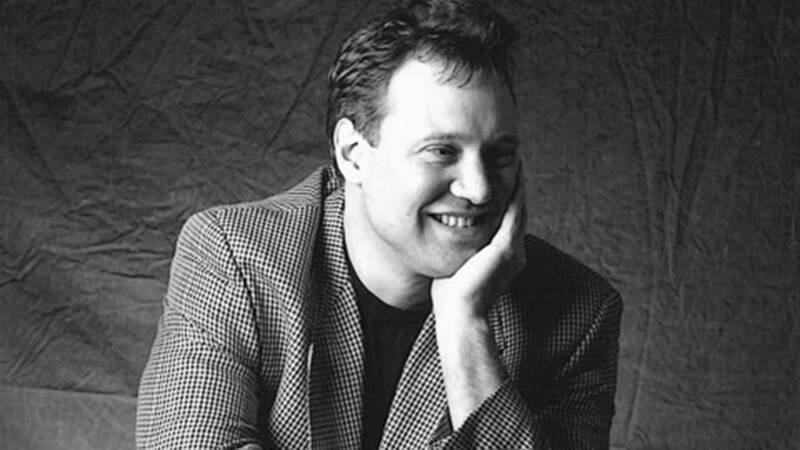You are viewing your 1 free article this month. Login to read more articles.
Sexual harassment reported by over half in trade survey
Just over half of the 388 respondents to The Bookseller’s survey on sexual harassment within the book industry said they have experienced harassment, with 54% of women and 34% of men stating that they had suffered abuse.
Those reporting harassment are spread throughout the industry: booksellers, large and small publishers, agents, scouts, authors, events organisers and freelances. The experiences they disclose range from crude or demeaning language used about women in the workplace, or at work-related social events, to suggestive comments and unwanted touching and groping, inappropriate sexual advances, predatory approaches made under cover of professional contact and assault. Two respondents to the survey said that they had been raped.
I was directly propositioned by older male colleagues, groped, and asked if I would be interested in having an affair. As the industry is so small I’ve since worked with many of those men again at different companies
-Salesperson
Where people have been harassed, it has often been carried out by more senior or high-status male colleagues, professional contacts, authors or clients, and the targets are often young, in junior roles, new in the workplace or working freelance. The risk of harassment also seems to be higher in certain roles; publicists, whose job often takes them on tour and puts them in close contact with authors outside an ostensibly professional setting, showed higher-than-average experiences of work-related harassment, with 66% saying they had experienced it. One noted that, while incidents with authors were “few and far between [. . .] It’s sad to admit that some authors don’t know where to draw the line, and having had ‘author care’ drilled into us as the most important part of what we do, it’s very hard to say anything.”
A high proportion of bookseller respondents reported abuse, with 61% from the sector revealing harassment from customers in the shop, colleagues or visiting authors. “It seems if you are in the service industry, there is a mistake by male customers that your demeanour is an invitation. I have been propositioned multiple times, almost always by older men, while working,” said one.
In an industry often structured around social get-togethers, alcohol is often cited in incidents of harassment. Numerous respondents reported colleagues or industry contacts overstepping the mark in situations where work and social life was blurred. ”I feel as soon as people have had a few drinks at an industry event, anything goes,” said one. “Male colleagues exploit the fact that ours is a ‘relaxed’ industry,” noted another.
Respondents frequently said that harassment seems to be tolerated or played down within some companies, particularly if senior individuals are involved. One publicist commented: “On multiple occasions I have been warned about notoriously lecherous male authors, journalists [or] senior publishing staff at launch events, meetings or parties, and told that their constant rudeness, patronising and predatory behaviour is ‘just part of the job’.” Another individual said: “I witnessed the same boss harassing numerous junior staff who all eventually left. He’d send inappropriate emails, lean over them, generally skirt the line of what he could get away with . . . He is still at the company in a senior and fêted position.” Another wrote that seeing a man who had been involved in harassing behaviour later promoted to a leading position made her doubt whether there was a place for her in the industry.
However, the m.d. of a large publisher who responded to the survey anonymously commented: “We have really good systems in place to ensure staff are as protected as they can be - and as rigorous procedures for complaint and grievance addressal as it’s possible to have.” A senior publicist noted: “I make it clear with those that work for me that I absolutely will not stand for it and I’m not afraid to publicly point it out or use such behaviour as a reason to examine our commercial relationships with authors.”
Some respondents felt the problem was a generational one, caused largely by older men or men in middle age; an “old-school generation in publishing”. Others felt strongly that younger men were equally involved. However, males were also the target of harassment: one respondent described the discomfort of being “felt up” in public by a senior woman in the industry, despite trying to laugh it off; another man talked of being “lunged at” by another man despite the former being heterosexual. Men also responded to the survey commenting sympathetically on the harassment that they had seen female colleagues subjected to.
Some respondents said they had shrugged off inappropriate behaviour, but others have been deeply affected, reporting lasting feelings of shame and humiliation, as well as a loss of professional confidence. One respondent told the survey about an incident of exploitation after being encouraged to drink heavily by a senior colleague, saying she had been too ashamed to share it before. Those who had experienced less severe harassment still resented the “wearying” nature of having to deal with sexism in the office.
Reporting behaviour
Of the 51% of respondents who said they had experienced harassment, sexual assault or predatory behaviour, only 36.8% of men said they reported it, and just 29.9% of women. Reasons not to make a sexual harassment complaint included feelings of fear, shame and embarrassment, as well as anxieties that claims would be dismissed or have an impact on the claimant’s prospects in the future.
[I’ve experienced] industry colleagues taking liberties on a dancefloor, on a walk home, in a taxi... I have turned my head or my body to avoid intimate kisses and touching. On a few occasions I have had private body parts offered to me. I have had to leave industry events where the situation has become too uncomfortable -Literary agent
Others cited the often subtle and pervasive nature of harassment as a factor for not reporting, with many saying that such behaviour is too widespread to consider reporting. Some were also confused about what constitutes harassment, with 7% of respondents unclear whether or not they had been harassed. One respondent said “growing up with the white noise of daily harassment” made it “difficult to know where you should draw the line”.
Many respondents said that the status of their harasser had stopped them from reporting incidents. “Report it? To who? They were the m.d/owner of their own companies,” said one respondent. Another said: “There would be absolutely no point [in reporting it]. I was so junior and he was - and is - so senior and so powerful. If I’d complained, it would have been easier to get rid of me than replace him.”
I considered reporting [a sexual advance by a publisher] but felt too scared to do so and in an incredibly vulnerable position as a freelance. I was also overwhelmed by the rage, shame and fear I felt
-Freelance
Meanwhile, 66% of respondents answered “No”, or “Not sure”, to a question asking whether they thought there were clear HR guidelines at their organisation for reporting harassment. Some expressed a lack of confidence in their organisation’s complaints system, with one respondent saying: “There’s never been anyone to report to, really. Or not anyone who would do anything about it.”
Of those who did report what had happened, responses to complaints ranged from very supportive (“The result was [the] sacking of the individual”) to dismissive (“I was told it was ‘banter’ and I needed to deal with it”), to non-existent (“Nothing happened”). One respondent said she reported harassment from an author but that no action was taken “because of the author’s stature within the company”.
Many of the survey’s respondents said an overhaul of current practice was needed to tackle the problem of harassment, with better education and training on the issue and zero tolerance towards the perpetrators. One argued: “Senior management [needs to take] proper responsibility for policing and come down hard on the behaviour of their senior colleagues, not just turn a blind eye, failing to understand the seriousness of it or laughing it off.”
I was working in an entry level position and was groped at an office party by a very senior male colleague who was quite drunk. I completely froze. I never mentioned it to anyone, I didn’t think it was worth it because he was in control of my career
-Editor
More diversity in senior roles was a popular suggestion to combat harassment at work, with one respondent calling for “more female senior managers to help set a culture of respect for all colleagues.”
Many said that they would like to see clearer directives from human resource departments and the heads of their companies on harassment, and more visible and accessible channels of where and how to report it. Some said a confidential and anonymous helpline would be useful; many respondents requested an independent or cross-publisher body to which reports could be made. This would seen to be particularly helpful for people working in small companies or agencies, as well as freelances and authors, where there is no HR department or where it would be difficult to maintain anonymity.
Male colleagues, frequently much more senior, have made inappropriate sexual comments, for which they are not held accountable... events and parties are the worst. Male colleagues exploit the fact that ours is a ‘relaxed’ industry
-Editor
Other recommendations were for employee contracts to include clauses specifying that harassment will be treated with disciplinary action, and a shift of the weight of responsibility from the victim to the perpetrator. Instead of telling employees to “be careful” around certain members of staff, the onus should be on making clear to culprits that their behaviour won’t be tolerated.
Well over half of respondents (59%) said that the social aspect of the industry often puts employees in particularly vulnerable situations, and many respondents suggested a check on the industry’s drinking culture and steps to protect more junior members of staff at such events.
A senior publisher sexually assaulted me - we walked back from a publishing event one evening, and he stuck his tongue down my throat, a hugely unwanted advance that left me feeling disgusted and traumatised
-Author
At a launch party, a drunk senior manager groped my breasts. It was deeply upsetting and humiliating. I felt very powerless -Bookseller
Several respondents said more open conversation and dialogue about what constitutes harassment and what is acceptable would help the industry move forward. One commented: “Harassment thrives on secrecy, so the more it’s being talked about, and the more women who are listened to, the harder it will be for abusers and harassers to continue undiscovered . . . A lot of people in the industry are already thinking about their behaviour differently [following the Harvey Weinstein scandal in the US]. Bringing these things out into the open is a start.”
Most authors are fabulous, but a few have made my life difficult at times. Also, being a publicist, you’re staying in hotels with them around the country, often as the only representative of your company. No one is there at the time to protect you and often they are such big-name authors that you wouldn’t dare tell anyone. Many publicists share these stories in the pub or in private - but I’d never have the guts to tell colleagues higher up. Who would believe me? -Publicist
Blog: deputy editor of The Bookseller, Benedicte Page, on the findings of the harassment survey.















